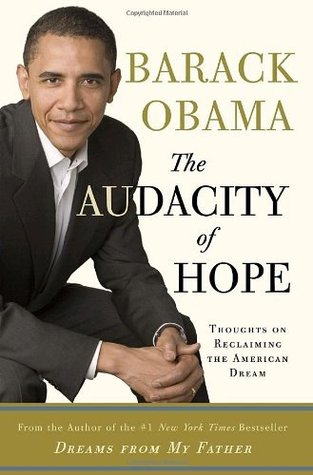More on this book
Community
Kindle Notes & Highlights
the recurring habits of thought that may be genetic or may be environmental, but that will almost certainly worsen with time, as surely as the hitch in your walk turns to pain in your hip.
we feel in our gut the lack of honesty, rigor, and common sense in our policy debates, and dislike what appears to be a continuous menu of false or cramped choices.
I am angry about policies that consistently favor the wealthy and powerful over average Americans, and insist that government has an important role in opening up opportunity to all.
I believe in evolution, scientific inquiry, and global warming;
I believe in free speech, whether politically correct or pol...
This highlight has been truncated due to consecutive passage length restrictions.
I am suspicious of using government to impose anybody’s religious beliefs—includin...
This highlight has been truncated due to consecutive passage length restrictions.
I am bound to disappoint some, if not all, of them. Which perhaps indicates a second, more intimate theme to this book—namely, how I, or anybody in public office, can avoid the pitfalls of fame, the hunger to please, the fear of loss, and thereby retain that kernel of truth, that singular voice within each of us that reminds us of our deepest commitments.
Except for the few minutes that it takes to vote, my colleagues and I don’t spend much time on the Senate floor.
By the time we reach the floor and the clerk starts calling the roll, each of the senators will have determined—in consultation with his or her staff, caucus leader, preferred lobbyists, interest groups, constituent mail, and ideological leanings—just how to position himself on the issue.
In the world’s greatest deliberative body, no one is listening.
I understood politics as a full-contact sport, and minded neither the sharp elbows nor the occasional blind-side hit.
insist that we live in the worst of political times, that a creeping fascism is closing its grip around our throats,
I may mention the internment of Japanese Americans under FDR, the Alien and Sedition Acts under John Adams, or a hundred years of lynching under several dozen administrations as having been possibly worse, and suggest we all take a deep breath.
there is a great deal of truth in this reminder of the challenges we have overcome, however, corporate influence does threaten a fascist slide and he does not mention this in my estimation because of national level politics.
We know that our health-care system is broken:
adapted to an economy no longer built on lifetime employment, a system that exposes hardworking Americans to chronic insecurity and possible destitution.
“It’s generational,” he told me without hesitation. “Back then, almost everybody with any power in Washington had served in World War II.
with the war, we all had something in common. That shared experience developed a certain trust and respect. It helped to work through our differences and get things done.”


